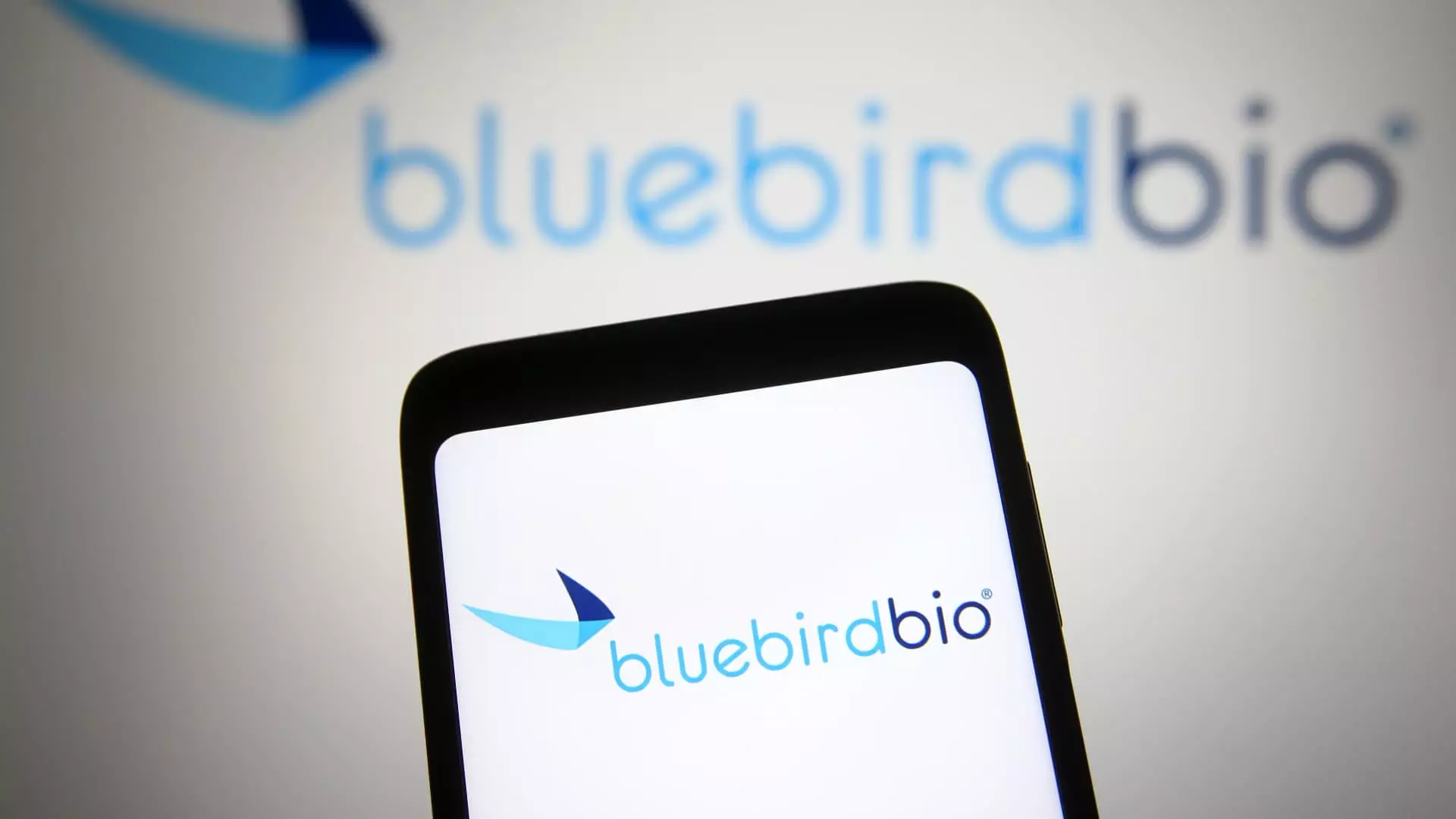Bluebird Bio, once a titan of the biotech industry heralded for its pioneering gene therapies, is now in the process of being acquired by private equity firms Carlyle and SK Capital for a mere $30 million. This dramatic fall from grace marks a stark contrast to Bluebird’s previous standing, where it was valued at nearly $9 billion, and serves as a cautionary tale illustrating the precarious nature of biotech enterprises.
For over three decades, Bluebird Bio has positioned itself at the cutting edge of gene therapy innovations, promising revolutionary one-time treatments aimed at curing genetic diseases. Investors were initially enamored with Bluebird’s lofty ambitions, with share prices peaking at approximately $7.04 per share before plummeting by 40% immediately following the acquisition announcement. Shareholders will receive an initial payment of $3 per share with a potential additional payout of up to $6.84 based on future sales performance—an optimistic yet increasingly uncertain prospect.
The inception of Bluebird’s downfall can be traced back to a confluence of scientific challenges, regulatory pushback, and financial mismanagement. The turning point is often cited as 2018, when a patient treated for sickle-cell disease developed cancer—a significant blow that prompted widespread skepticism regarding the safety of its gene therapy products. Although Bluebird determined that its therapy did not cause this adverse effect, the damage to public perception was irrevocable.
The controversy surrounding Bluebird’s pricing strategies also contributed to its disarray. The company’s flagship gene therapy for beta-thalassemia, Zynteglo, was priced at a staggering $1.8 million per patient, which proved untenable in the European market. Consequently, Bluebird withdrew Zynteglo from Europe in 2021, just two years after its approval, pivoting its focus to the U.S. market in hopes of reversing its fortunes. Despite the approval of several gene therapies—including Zynteglo, Lyfgenia for sickle cell disease, and Skysona for a rare brain disorder—efforts to rebound financially have yet to materialize.
While these therapies have received enthusiastic endorsements from patients, the fiscal realities paint a grim picture. Bluebird has been hemorrhaging funds, reportedly spending hundreds of millions annually, compounded by the offloading of its cancer research division into a separate entity named 2Seventy Bio. This strategic split not only eliminated an important revenue stream but also left Bluebird struggling to maintain a viable operational budget.
The challenges faced by Bluebird Bio underscore broader systemic issues within the biotechnology sector. The field is grappling with whether the promise of one-time gene therapies can translate into sustainable business models. Other companies in the space, such as Vertex and Pfizer, are experiencing similar struggles, indicating that Bluebird’s downfall may not be an isolated incident but reflective of wider industry difficulties. Vertex’s gene therapy for sickle cell disease, for example, has launched slowly, mirroring Bluebird’s fate, while Pfizer recently halted a gene therapy for hemophilia just a year after its introduction due to poor market demand.
The stark reality is that despite transformative potential for patients and the promise of life-changing outcomes, many biotech firms are finding it increasingly difficult to secure the necessary market acceptance and stable financial footing. Critical questions loom: Can these pioneering therapies manifest into profitable ventures? Will patients continue to hold hope for cures when coupled with exorbitant costs and unpredictable outcomes?
The impending sale of Bluebird Bio encapsulates a bittersweet conclusion to a once-heroic narrative in the biotech realm. It is a sobering reminder of the fragility of success in this high-stakes industry. Even as Bluebird’s gene therapies may still hold the potential to improve countless lives, they were ultimately incapable of salvaging the company’s trajectory. As the biotechnology landscape continues to evolve, stakeholders must remain vigilant, learning from Bluebird’s journey to navigate the complexities of innovation, funding, and market acceptance in the pursuit of groundbreaking medical advancements.


Leave a Reply